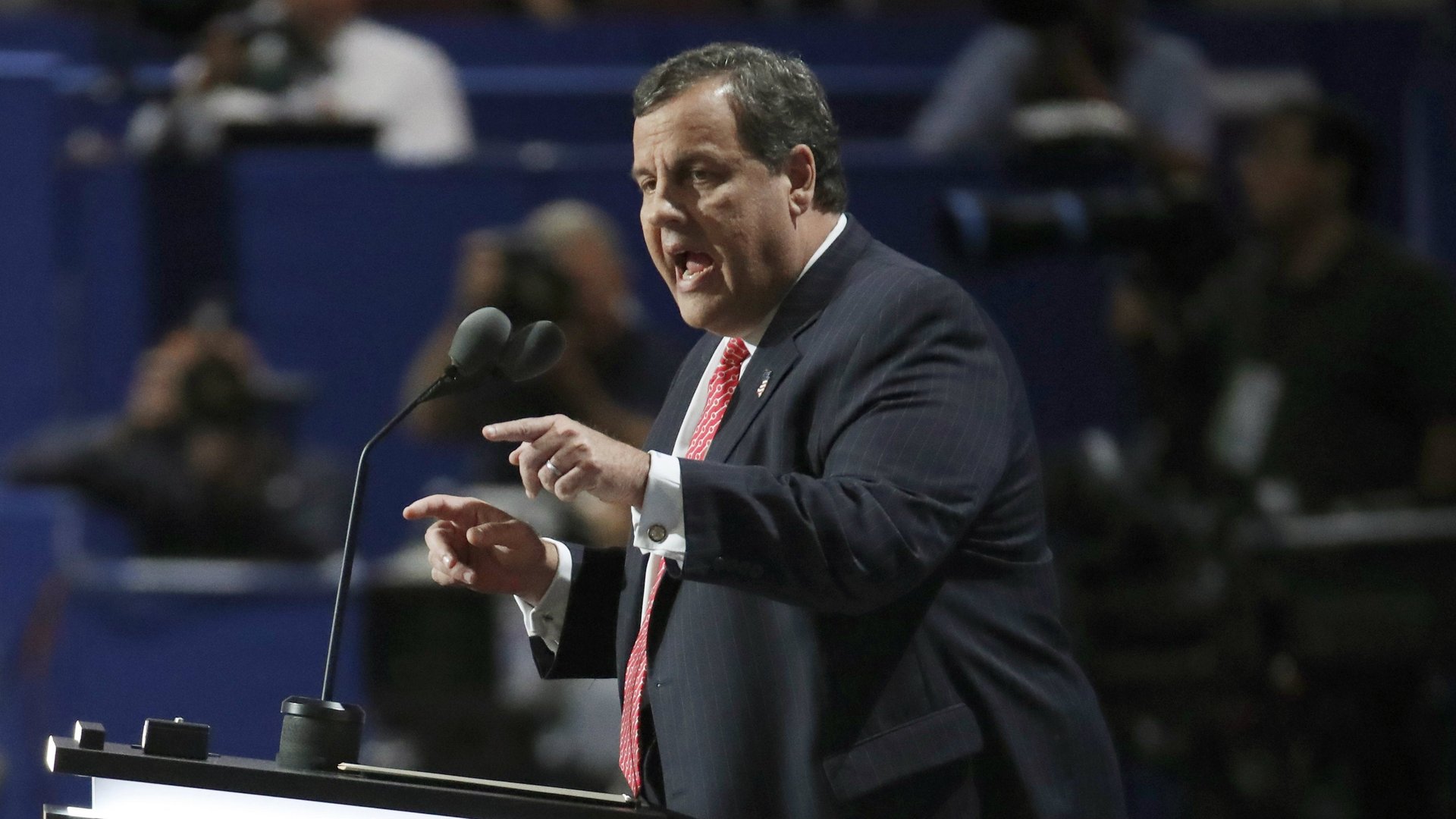Chris Christie used #BringBackOurGirls against Hillary Clinton, and it didn’t go down well in Nigeria
When New Jersey governor Chris Christie took the stage at the Republican National Convention on Tuesday (July 19), few were surprised that, like speakers before him, he focused on attacking Hillary Clinton and her performance as secretary of state.


When New Jersey governor Chris Christie took the stage at the Republican National Convention on Tuesday (July 19), few were surprised that, like speakers before him, he focused on attacking Hillary Clinton and her performance as secretary of state.
Christie, a former federal prosecutor, ran through a familiar list of Republican talking points, such as her handling of the Benghazi attack in 2012 and her email scandal. But few—if any—expected him to blame her for the 2014 kidnapping of schoolgirls in Chibok, northeastern Nigeria, by Boko Haram.
“In Nigeria, Hillary Clinton amazingly fought for two years to keep an al-Qaeda affiliate off the terrorist watch list,” Christie said. ”What happened because of this reckless action by the candidate who is the self-proclaimed champion of women around the world? These terrorists abducted hundreds of innocent young girls two years ago.”
But Christie ignored crucial context when he made his claims. True, the United States did not list Boko Haram as a terrorist group during Clinton’s tenure, but it did designate several of the group’s leaders as global terrorists. Nigeria’s government also opposed designating Boko Haram a terrorist group. Such a move, it said, would “elevate” its status and make it easier to attract international support. US-based Africa studies scholars added that listing the group would legitimize abuses and excessive use of force by Nigerian security services.
The speech was not well received in Nigeria. Oby Ezekwesili, a former federal minister and vocal leader of the #BringBackOurGirls campaign, said the use of the kidnapped Chibok girls to gain political points was insensitive. Many other Nigerians echoed her thoughts on social media.
In May, Nigerian authorities confirmed the rescue of one of the girls. However, there has been no significant progress in recovering the more than 200 who remain captive, despite talks of possible negotiations between Nigerian authorities and Boko Haram.